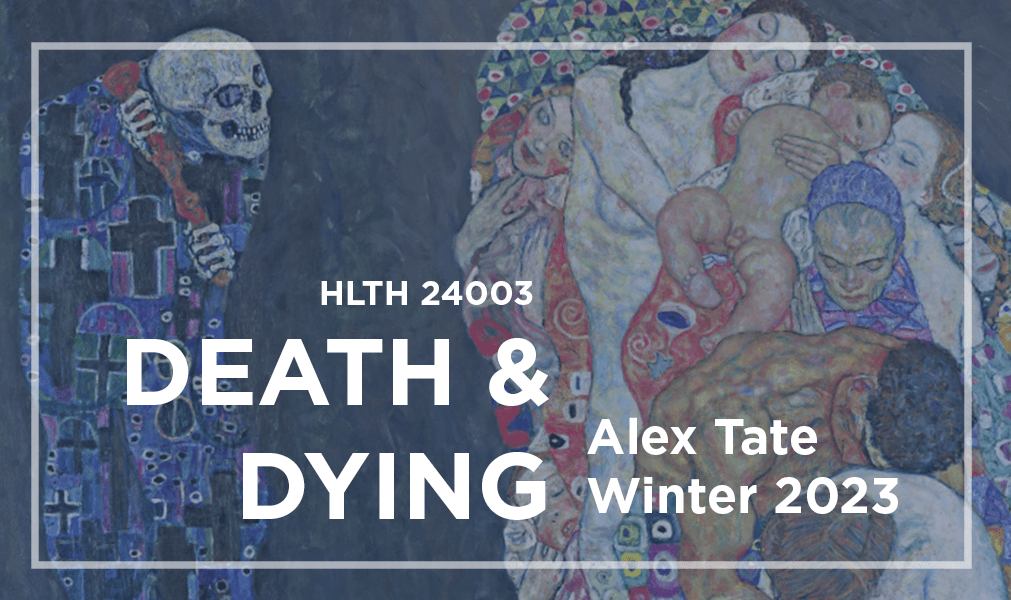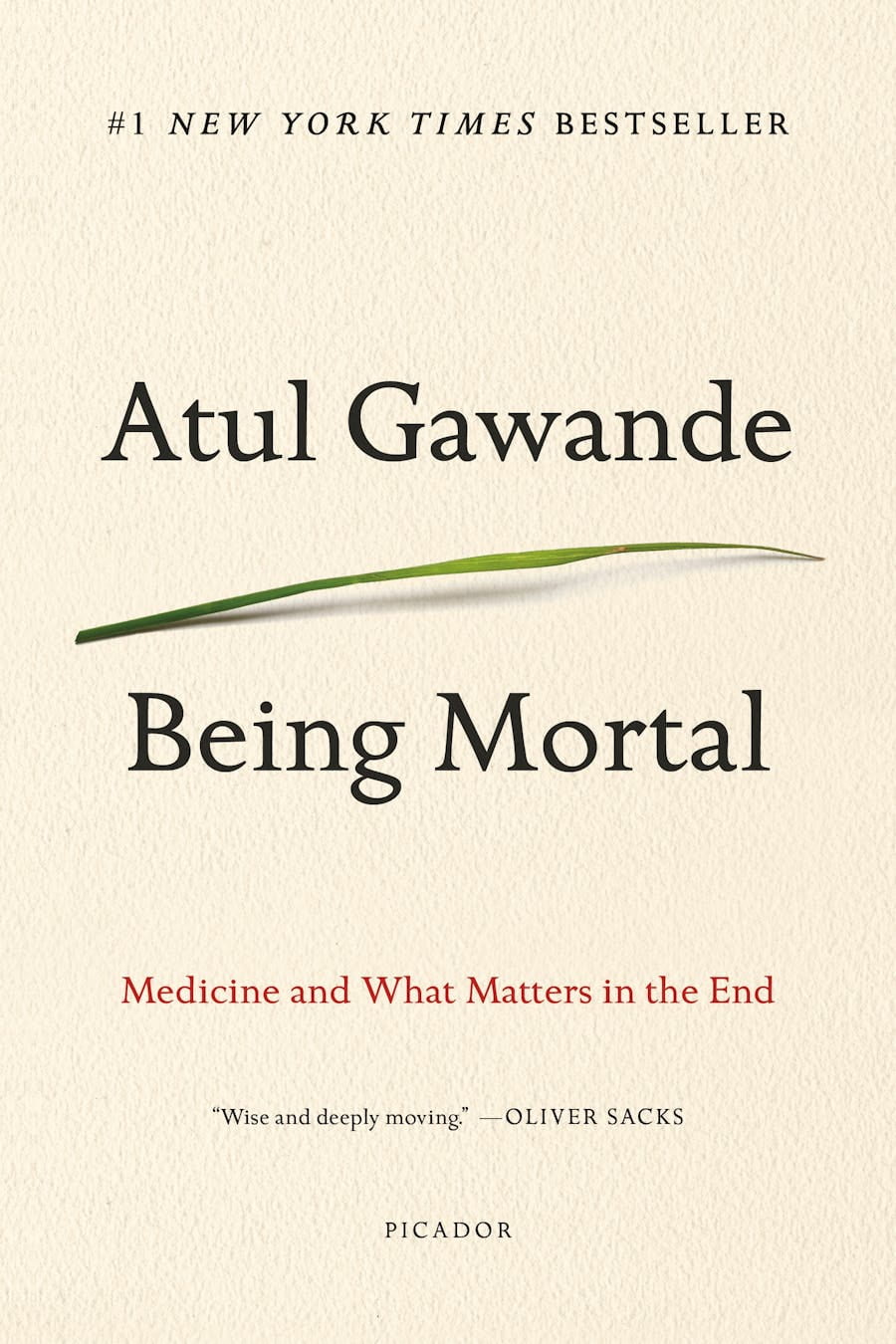Klimt, Gustav. Death and Life. 1910. Oil on canvas, W200.5 x h180.5 cm (Without Frame). https://www.leopoldmuseum.org/en/collection/highlights/146.
Through this course, Tate hopes that students will begin to think about death and the end of life as a phase of life itself, and the roles that they play in this aspect of life for their loved ones.
Gawande, Atul. Being Mortal: Medicine and What Matters in the End. New York: Picador Metropolitan Books, 2017.
An Interview With Alex Tate
by Connie Chen
Dr. Alex Tate is a Research Director in the Section of Hospital Medicine at the University of Chicago; she is also a medical sociologist by training. In Winter 2023, Tate will teach Death and Dying for the Health and Society minor.
Tate has always had an interest in the end of life and the concept of the good death, especially what the American notion of the good death is. Although her PhD research was on cancer care, these topics came up more frequently than she expected. The idea of the good death is so critical as it impacts the kind of care and treatment patients receive. Furthermore, although people may agree that a good death should look a certain way, it doesn’t always turn out like that. The type of care people receive is not random; it is very much stratified and patterned by their backgrounds, including socioeconomic demographics, race, ethnicity, geographic region, and whether you live in a Right to Die state. Thus, Tate views dying and the end of life not only as a biological process, but also a social one. Overall, the Death and Dying course will seek to address some of the complications and issues surrounding the good death.
Through this course, Tate hopes that students will begin to think about death and the end of life as a phase of life itself, and the roles that they play in this aspect of life for their loved ones. She noted that usually, elderly people are the ones who consider this topic but the COVID pandemic has shown that death is not a phenomenon that only applies to older populations. In addition, the pandemic has brought to the forefront the significant inequities in the current healthcare system, including the types of treatment and end of life care that different patients receive.
In addition to her own experience and research in the field, one text that Tate is particularly interested in sharing is Being Mortal by physician-writer Atul Gawande. This book explores the roles of doctors in whether they give their patients the good death. The medical establishment is fascinated by treatment and prolonging life; however, a question Gawande proposes about these practices is: “At what cost?” Tate is excited to discuss the costs of medical technologies and keeping patients alive, both in the monetary sense and in terms of the impact that these decisions make on the patient’s end of life care and the lives of their loved ones.
Any student who is interested in entering medicine, public health, or related fields would benefit greatly from taking this course. It is crucial for people to understand how society shapes the dying process, even if we don’t admit it openly. However, a truly rich discussion involves students from all different disciplines including the humanities and social sciences. Although some of the topics in this course may be heavy or triggering, Tate feels it is important to be able to discuss them in a safe setting; she is excited to facilitate productive discussions between diverse groups of students.
Death & Dying
Instructor: Alex Tate
HLTH 24003 (HIPS 24003; RLST 24003; SOCI 20582)
Tues / Thurs 9:30-10:50AM
Death happens to everyone. However, dying is as much a social process as an individual one. The factors that impact how, when and where people die, and how societies handle death and dying, are shaped by the structural and cultural forces in our world. These range from economic, geographic, and religious forces to the institutional politics of health care systems. The sociology of death and dying is the systematic study of the structure of the human response to death, dying, and bereavement in their socio-cultural, interpersonal, and individual contexts. Often conceptualized as a discrete event, death is a process that is shaped over the life course. In this course, we will analyze the socio-demographic patterns of death, the factors that shape the process of dying, the economics of dying, and the ways that individuals and groups respond to death. We will also consider the social factors that shape a “good death” and discuss current policies and debates surrounding end-of-life care and aid-in-dying.

